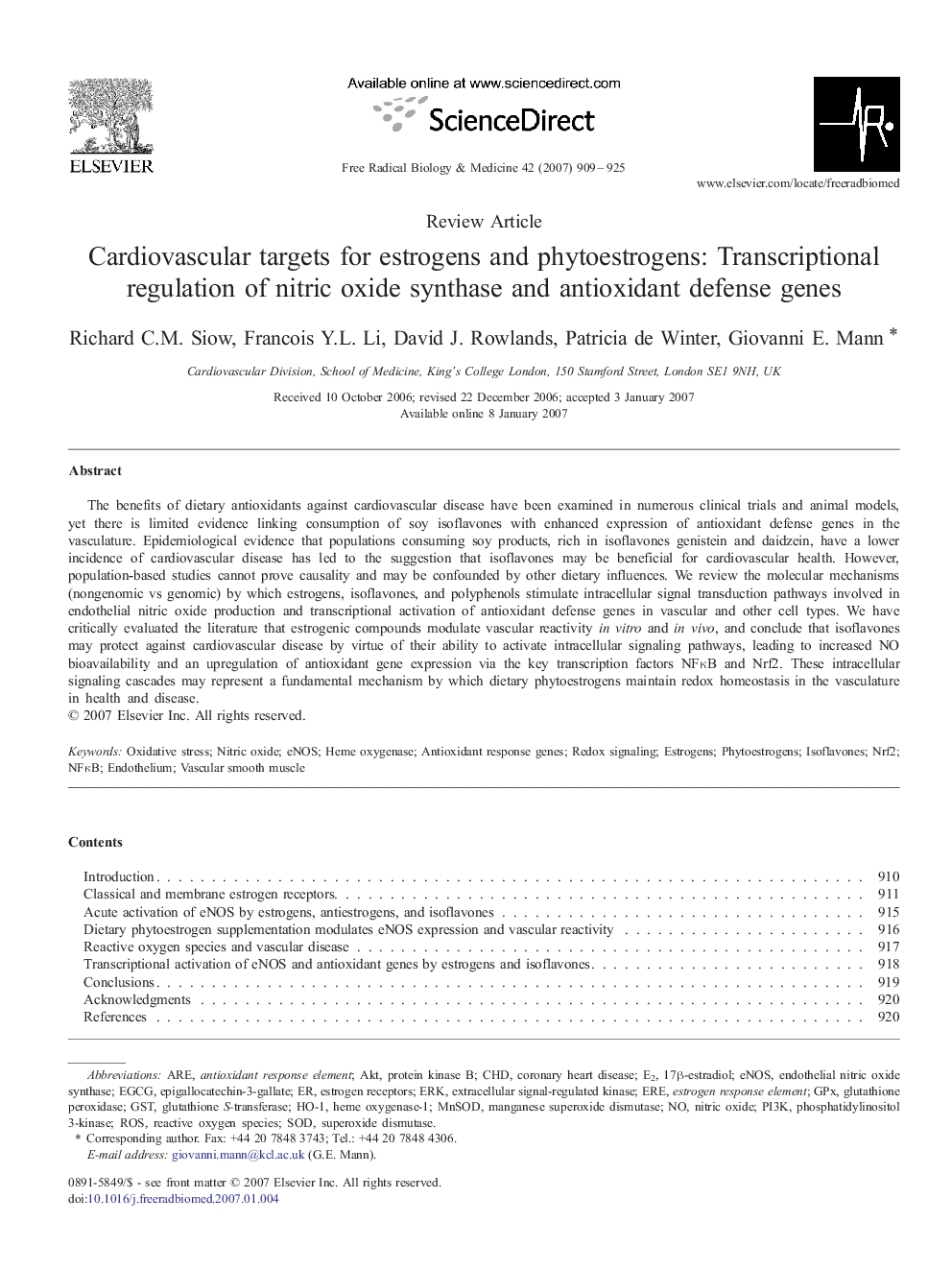| Article ID | Journal | Published Year | Pages | File Type |
|---|---|---|---|---|
| 1911694 | Free Radical Biology and Medicine | 2007 | 17 Pages |
The benefits of dietary antioxidants against cardiovascular disease have been examined in numerous clinical trials and animal models, yet there is limited evidence linking consumption of soy isoflavones with enhanced expression of antioxidant defense genes in the vasculature. Epidemiological evidence that populations consuming soy products, rich in isoflavones genistein and daidzein, have a lower incidence of cardiovascular disease has led to the suggestion that isoflavones may be beneficial for cardiovascular health. However, population-based studies cannot prove causality and may be confounded by other dietary influences. We review the molecular mechanisms (nongenomic vs genomic) by which estrogens, isoflavones, and polyphenols stimulate intracellular signal transduction pathways involved in endothelial nitric oxide production and transcriptional activation of antioxidant defense genes in vascular and other cell types. We have critically evaluated the literature that estrogenic compounds modulate vascular reactivity in vitro and in vivo, and conclude that isoflavones may protect against cardiovascular disease by virtue of their ability to activate intracellular signaling pathways, leading to increased NO bioavailability and an upregulation of antioxidant gene expression via the key transcription factors NFκB and Nrf2. These intracellular signaling cascades may represent a fundamental mechanism by which dietary phytoestrogens maintain redox homeostasis in the vasculature in health and disease.
